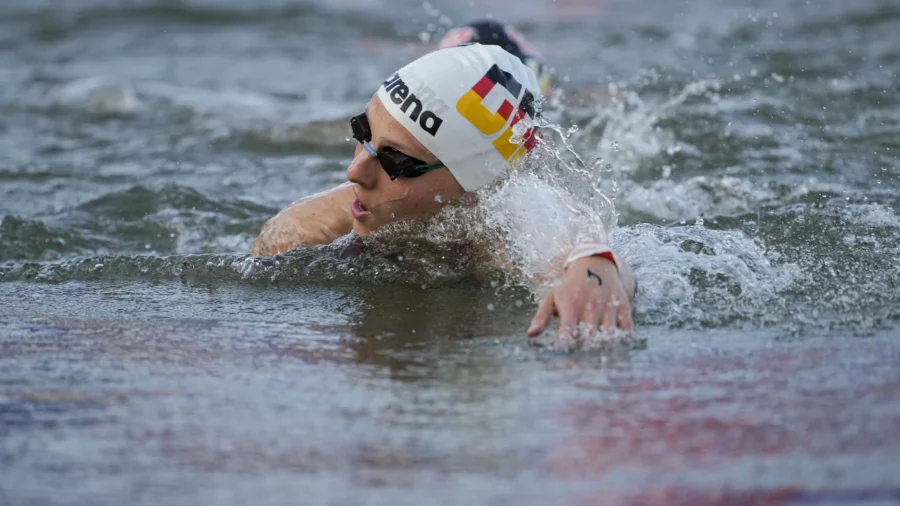PARIS—German swimmer Leonie Beck became ill after competing in the women’s open water race at the Paris Olympics, despite assurances that the water in the Seine River was safe.
Beck, who finished ninth in the 10-kilometer event, on Saturday posted on Instagram a picture of herself giving a thumbs up but looking ill.
“Vomited 9 times yesterday + diarrhea,” she posted, before adding sarcastically, “Water quality in the Seine is approved,” accompanied by a check mark.
Concerns about the long-polluted Seine, where swimming had been banned for more than a century because of bacteria-laden waters, came to the forefront after Paris organizers announced plans to hold open water swimming and the swimming portions of triathlon in the iconic river that runs through the heart of the French capital.
Despite a massive, expensive cleanup project, some readings showed unacceptable levels of bacteria such as E. coli, leading to changes in the triathlon schedule and cancellation of one of two open water training sessions scheduled ahead of the men’s and women’s 10-kilometer races.
Several athletes fell ill after the triathlon, but it wasn’t clear if any of their conditions were caused by swimming in the Seine.
A total of 53 swimmers—29 men and 24 women—competed in the open water races. Most said the cleanliness of the water was not an issue, with women’s gold medalist Sharon van Rouwendaal of the Netherlands saying she actually took a few gulps of the river when she was feeling parched during her race.
“It was cold,” she said. “It was nice.”
Ireland’s Daniel Wiffen, a swimming gold medalist in the 800-meter freestyle who competed in his first open water race, shrugged off concerns about the cleanliness of the waterway. He said the readings he saw ahead of the men’s race showed less E. coli in the Seine than one would normally find in a pool.
The Paris organizing committee issued a statement saying it had “heard reports of the athlete’s illness and we wish them a speedy recovery.”
“At this stage, we are not aware of any established link between the illness and the Seine’s water quality,” the statement said. ”Water quality on the day of the marathon was considered ‘very good’ or ‘excellent’ across all four testing points and well within the thresholds established by World Aquatics.”
World Aquatics did not immediately respond to a request for comment.
By Paul Newberry

